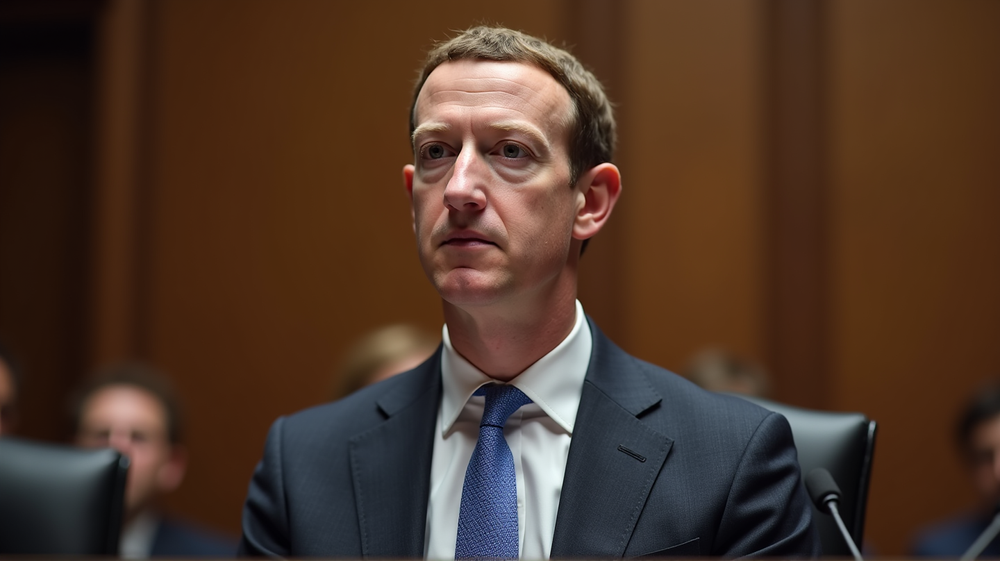Zuckerberg Faces Scrutiny: Meta's Fight Against Monopoly Allegations
In a courtroom drama echoing the complexities of modern industry dynamics, Mark Zuckerberg valiantly stood to defend his brainchild, Meta, against accusations of monopolistic dominance in the social media sphere. The unfolding trial, a landmark in antitrust law, casts a spotlight on the intricate dance of acquisition and competition within the technological titans.
The Context: A Battle That Began in Politics
The roots of this case delve deep into political transformations and market evolutions. The FTC filed suit in 2020 targeting Meta’s powerful grasp over social media markets, highlighting its past acquisitions of Instagram and WhatsApp. Allegations suggest these maneuvers squelched competition, a claim strongly rebuked by Meta’s side showcasing how such acquisitions fueled innovation rather than stifled it.
Zuckerberg’s Testimony: A Defensive Strategy
On the stand, Zuckerberg offered an articulate defense, projecting his actions as strategic expansions to strengthen the technology stack, particularly emphasizing Instagram’s then-innovative camera technology, rather than a mere market dominance tactic. His testimony aims to underscore how Meta’s vision enhanced user experiences, though critics view these justifications with skepticism.
The FTC’s Stance: Combatting Market Giants
According to Panay News, the FTC paints a picture of a tech giant attempting to buy out competition rather than confronting it head-on. Opening statements cited past internal communications, presenting a narrative where competition was neutralized via financial muscle. Yet in the halls of justice, the job of proving monopolistic malevolence becomes daunting in the lively world of social media.
Meta’s Defense: Innovation and Consumer Experience
Meta’s defense narrates a tale of increased consumer satisfaction and technological integration post-acquisition. Legal representatives argue that stepping in to nurture and evolve these platforms alongside existing Meta products translates to a richer digital ecosystem rather than a barren competitive landscape. As eMarketer suggests, Instagram’s escalating role in advertising revenue lights the path of commercial success through adaptation and innovation.
The Political Dimension: Alignments and Influences
Beyond the courtroom’s confines, Meta’s engagement with political figures, particularly within the Trump orbit, raises eyebrows and underscores the multifaceted nature of big tech narratives. This dynamic illuminates the wider repercussions of mergers not only on market landscapes but also on political affiliations and interactions.
A Precedent in Waiting
The juxtaposition of similar high-profile cases, including USA v Google, accentuates the complexity of defining and proving monopolistic behavior across differentiated markets. As the trial unfolds, observers remain poised, realizing that its outcome might reshape the contours of digital enterprise futures and regulatory oversight. With voices both supporting and challenging, one realization prevails: the realm of social media, rich with potential and pitfalls, remains a fiercely contested terrain.




